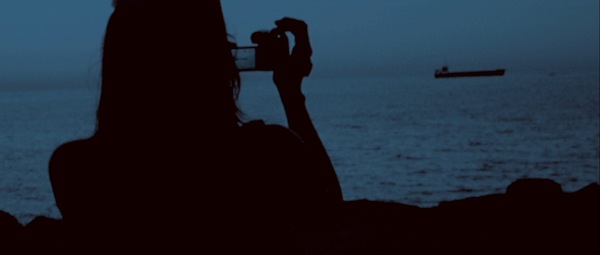In
2005, filmmaker Gary Tarn gave us the remarkable Black Sun, which used street footage and idiosyncratic animation to
visualise the experiences, memories and dreams of a New York artist blinded in
an acid attack. It had one-off written all over it, yet after some time in the
wilderness Tarn has returned with what would appear an equally challenging
project to realise: a film that seeks to put up on screen something of Khalil
Gibran’s international bestseller The
Prophet – favourite of New Agers for almost a century – and which tries to
make the book’s themes of peace and reconciliation newly relevant to our
ultra-commercialised, snark-addled world.
As
Thandie Newton reads passages from the original tome, we watch the vérité
footage Tarn has compiled on his travels to illustrate Gibran’s themes. The
“riders of the tides” here become ferry passengers; “those leaving the fields
and hastening towards the city gates” are commuters at knocking-off time. In
this version, we are all wanderers, all seekers. The Prophet’s chief limitation is inherent, and soon becomes clear:
Gibran’s religiose prose style (since refined, and made more commercial yet, by
the Brazilian author Paulo Coelho), which uses a lot of words to tell us all we
need is love.
What
redeems the film is its maker’s restless, inquisitive, compassionate eye. Tarn
retains an ability to match abstract concepts to bold, vivid images. A passage
of Gibran’s about “the season of giving” sparks a tribute to the selflessness
of the late anti-War protestor Brian Haw, but often Tarn’s choices are more
matter-of-fact in their interpretation: the prophet’s warnings about “baking
bread with indifference” cues footage of men in a bakery, doing their best to
avoid precisely that, while the pick-uppish line “your clothes conceal much of
your beauty” sets Tarn to the most lyrical filming yet of the annual World
Naked Bike Ride.
This
is ultimately a respectful adaptation of the source, which means – as with the
book – that the half of the audience who don’t find it profound and touching
are doomed to find it impenetrable, if not outright naïve. An entirely
satisfying film of The Prophet may be
beyond any director, but for now, it’s possible to admire Tarn’s attempt: his
version would sit very neatly on the same shelf as Michael Almereyda’s recent Paradise, another variably hazy parade
of home-movie footage one might sift for its fragments of truth, wonder and
beauty.
The Prophet opens in selected London cinemas from today.

No comments:
Post a Comment